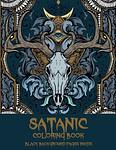Pierre Klossowski
Pierre Klossowski (1905–2001) was a French philosopher, writer, and translator. He was the older brother of the painter Balthus and is known for his philosophical writings that explore themes of eroticism, theology, and the philosophy of language. Klossowski wrote novels, essays, and was also known for his translations of works by Friedrich Nietzsche and Marquis de Sade. His most notable works include 'Robert Ce Soir' and 'Le Baphomet', which are marked by their intellectual depth and controversial subject matter.
Books
This list of books are ONLY the books that have been ranked on the lists that are aggregated on this site. This is not a comprehensive list of all books by this author.
-
1. The Laws Of Hospitality
"The Laws of Hospitality" is a philosophical exploration of the intricate and often transgressive dimensions of desire, hospitality, and the taboo. The book delves into the complex relationships between hosts and guests, examining the unwritten rules and ethical dilemmas that govern their interactions. Through a series of provocative scenarios and reflections, the text challenges conventional moral boundaries and societal norms, inviting readers to consider the underlying power dynamics and the role of the erotic in the seemingly benign act of welcoming another into one's private space. The work intertwines narrative elements with theoretical insights, creating a tapestry that questions the very foundations of human relationships and the laws that seek to regulate them.
The 7160th Greatest Book of All Time -
2. The Baphomet
"The Baphomet" is a philosophical novel that delves into the esoteric and mystical aspects of the Knights Templar, exploring themes of transgression, heresy, and the nature of divine presence. The narrative is structured around a series of ritualistic encounters and dialogues among the Templars, who have achieved a form of immortality. The characters engage in complex discussions on the dissolution of individual identity, the fluidity of gender, and the quest for spiritual transcendence. The book blends historical elements with surreal and symbolic imagery, challenging the reader to consider the boundaries of desire, knowledge, and the sacred.
The 7160th Greatest Book of All Time

